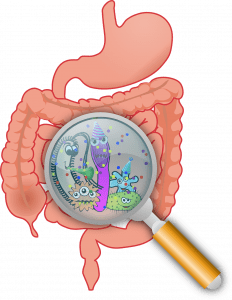Could it be that artificial sweeteners speed up the development of the very disorders they were designed to prevent? According to a recent study, the answer is yes. Artificial sweeteners, intended to aid diabetes prevention and weight loss, actually have the opposite effect, adding to the epidemic sweeping the nation.
A study by graduate student Jonathan Suez found that artificial sweeteners directly affect the body’s ability to utilize glucose. In his experiment, mice were given water containing the three most common artificial sweeteners in the same quantities allowed by the FDA. The mice in the study developed a glucose intolerance as compared to those in a control group of mice with regular and sugar water.
The scientists repeated the experiment a second time, changing the types of mice and dosage of artificial sweeteners. Even so, the results were the same- artificial sweeteners induced a glucose intolerance in the mice. But why?
The researchers coined a hypothesis that the sugar substitutes change the function and composition of gut microbiota, or the population of bacteria that reside in the intestine. The body does not recognize the artificial sweeteners as “food,” so they are not absorbed in the digestive tract. Thus, they pass through to encounter the millions of bacteria in the gut microbiota, which are directly responsible for harmful effects on the metabolism.
Fun Gut Microbiota Cartoon Model
This hypothesis was confirmed in a follow-up experiment. Researchers gave mice antibiotics that eliminated the majority of their gut bacteria and then transferred the microbiota from mice that had consumed artificial sweetener to these germ-free mice. The researchers found that the transfer of the harmful microbiota also meant a transmission of the glucose intolerance. Indeed, changes to gut microbiota populations by artificial sweeteners promote glucose intolerance and health complications.
The experiment modeled on mice is also applicable to human beings. Further study and data from the personalized nutrition project, a self-reported program that tracks the relationship between nutrition and microbiota, showed a significant association between artificial sweetener consumption and glucose intolerance by those who shared their responses. Similarly, the researchers conducted a controlled experiment with participants who normally did not consume artificially sweetened foods but ate entirely artificially sweetened products for a week and saw that those in the study began to develop glucose intolerance after only seven days. They also saw a change in the composition of their gut microbiota, discovering two different populations of human gut bacteria – one that induced glucose intolerance when exposed to the sweeteners, and a second that did not affect people either way.
One researcher, Elinav, hypothesizes that the reasoning for this is that certain bacteria in the guts of the affected individuals reacted to the chemical sweeteners by producing substances that cause an inflammatory response similar to that of a sugar overdose. This then changes the body’s ability to utilize sugar and gives rise to diseases, such as those like diabetes discussed earlier.
These findings are worth considering when consuming varying cuisines in day to day life. I know I’ll definitely rethink when I find myself reaching for the “healthier alternative,” considering whether its a reality or merely a marketing technique. How do you balance the consumption of healthy and less favorable meals, treats and snacks, in your daily life? Let me know in the comments below.
Your favorite muscular tube,
Jessophagus


Leave a Reply